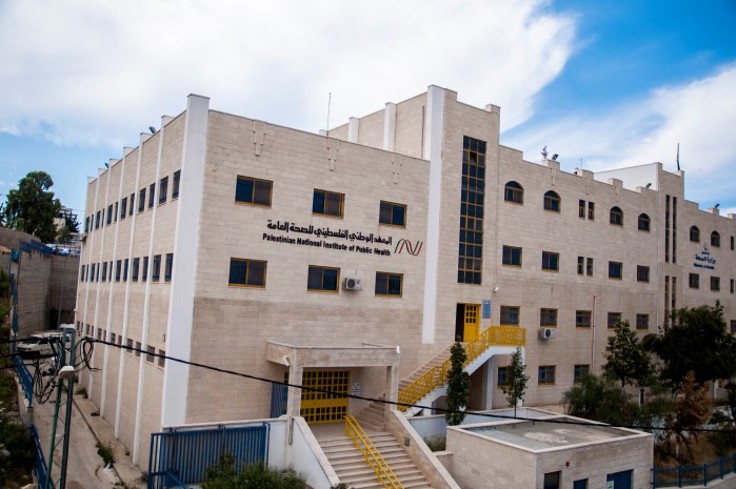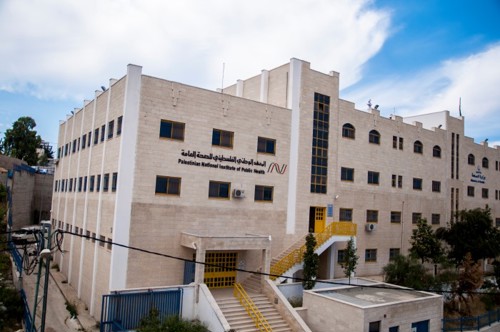Global Health Preparedness Project in Palestine
Article
|Updated
Following the establishment of the Palestinian National Institute of Public health (PNIPH), GHPP assisted in developing needed organisational frameworks and structures.
History of collaboration in Palestine
Norway represented by NIPH has been heavily involved in strengthening the core institutional public health functions in Palestine. In 2011 a quadripartite agreement between the Palestinian Authority, WHO, NIPH and the Norwegian Ministry of foreign affairs (MFA) was signed to establish a Palestinian National Institute of Public Health (PNIPH). NIPH seconded a senior technical advisor to Palestine for two years, who played a vital role in understanding the complexity surrounded the start-up phases of the PNIPH. The close and extensive collaboration continued with the Palestinian participation within the Global Health Preparedness Programme (GHPP). The GHPP was designed to contribute to global efforts of fostering the implementation of the International Health Regulations (2005) (IHR) worldwide.
NIPH has over many years supported Palestine in developing and implementing the e-Registries project of Reproductive, Maternal. Neonatal and Child Health (RMNCH), which is a major research, health information, and infrastructure project. In a collaborative project, NIPH supported Palestinian authorities in the Gaza Strip to investigate a large outbreak of viral meningitis, assessed the laboratory capacity of diagnosing meningitis in the Gaza Strip, provided guidance for an antibiotic policy, recommendations for improving laboratory capacity and organisation, improving clinical diagnosis and treatment algorithms, and developing research projects.
Approximately 3.1 million Palestinians live in the West Bank (including around 0.4 million in East Jerusalem), and 2.1 million in the Gaza Strip according to Palestinian Central Bureau of Statistics. There has been an increase in the population by almost 55 % in the past 25 years. In 2015, life expectancy for males was 71,6 years and 77,9 years for females.
The occupation is causing a challenging health situation in Palestine and negatively affects the access to health care. The health situation in the Gaza strip is particularly critical after conflicts that has resulted in loss and injury of medical personnel and severe damages in the health system infrastructure.
Non-communicable diseases such as ischemic heart disease and cerebrovascular disease that leads to heart attacks and strokes, causes most deaths in the Palestinian population. However, communicable diseases such as tuberculosis, diarrheal diseases and acute respiratory infections, and zoonotic diseases such as brucellosis persist, and neonatal preterm death was the fourth most common cause of death in 2019. This is especially affecting populations experiencing poverty and overcrowding. Mental and psychosocial health of Palestinian youth is a national priority due to the impact of living in a conflict area characterised by violence, a high rate of unemployment and an uncertain future.1
GHPP had the WHO country office as the main contractual partner, but it was in a close contact with the Palestinian Ministry of Health (PA MoH). A full-time dedicated Palestinian doctor was recruited to WHO in 2017 and worked most of the time in the MoH.

Achieved results
The progress of GHPP in Palestine had been extensive, it ranged from developing all organisational frameworks and structures, IHR committees and focal points, laws and regulations, to knowledge development of organisational guidelines and SOPs. Although most of these establishments were in place when COVID-19 struck, PNIPH and NIPH had revised most of them moreover GHPP reordered its priorities to enhance the Palestinian ability to mitigate the pandemic. National capacities of event-based surveillance systems, laboratory capacities, hospital IPC guidance and risk communication were developed. There was a marked increase in implementation capacity when a dedicated person was in place in 2017. The GHPP has had a substantial impact on Palestine’s ability to be prepared to handle the pandemic, and some of these adoptions are:
- 24/7 accessible surveillance hotlines (one each in Gaza & West Bank) were developed to detect any event of public health concern and counter infodemics.
- Case definition of SARS-CoV-2.
- Trainings for IPC, Personal Protective Equipment (PPE) and case & clinical management protocol were developed.
- Integration of collected data of SARS-CoV-2 to DHIS2 electronic system.
- Data for Covid-19 was reflected in the (online) platform of EMFLU –EMRO as other notifiable diseases (H1N1, SARI) by preventive medicine department in MOH.
- Activation of the SARI surveillance from mid Sep – end of April (influenza season).
- Culture sensitivity data from 13 hospitals had been collected as piloting project and sent to GLASS with support of the technical unit in WHO-EMRO.
End-user experience
During the GHPP’s closing seminar, Dr Randa Abu Rabee from the WHO CO shared her experience during the five years of GHPP in the occupied Palestinian territory after being the national IHR focal point. She highlighted the following milestones of GHPP:
- Infrastructure development of central laboratory and providing technical training were a major milestone which enabled the Palestinian ministry of health to mitigate the ongoing pandemic.
- Several Standard Operation Procedures (SOPs) and emergency communication plans were developed and played a fundamental role respond to the pandemic.
- GHPP allowed for exchanging expertise in fields of epidemiology and outbreak management. It enhanced the Palestinian national ability to detect, trace and anticipate clusters of COVID-19 outbreaks.
- Consolidating all public health activities at one national institute of PNIPH - supported by NIPH- had an invaluable role in coordinating the national emergency responses to several outbreaks nonetheless mitigating the ongoing pandemic.
Handling COVID-19 would have been impossible without having GHPP’s implementations in place prior to the emergency.
- Dr Randa Abu Rabee
Lessons learned
- The importance of having a dedicated national person in Palestine who has sufficient time to follow up activities to ensure progress.
- Engagement of WHO as a contract partner was useful also because IHR is among their core activities.
- More direct engagement with the national stakeholders in some of the processes can facilitate progress.
GHPP for five years had succeeded to tackle several of challenges of the Palestinian complexity; political, financial and technical.
- Dr.Randa Abu Rabee

